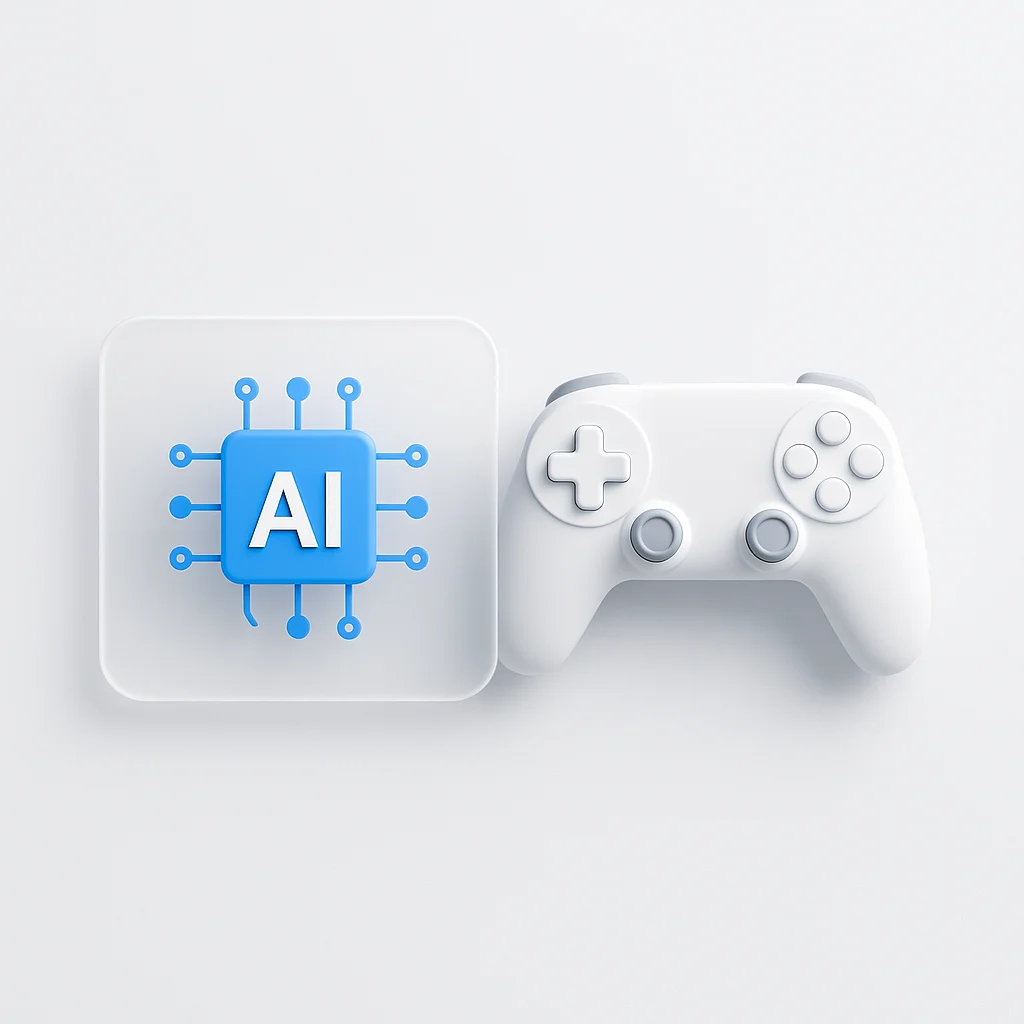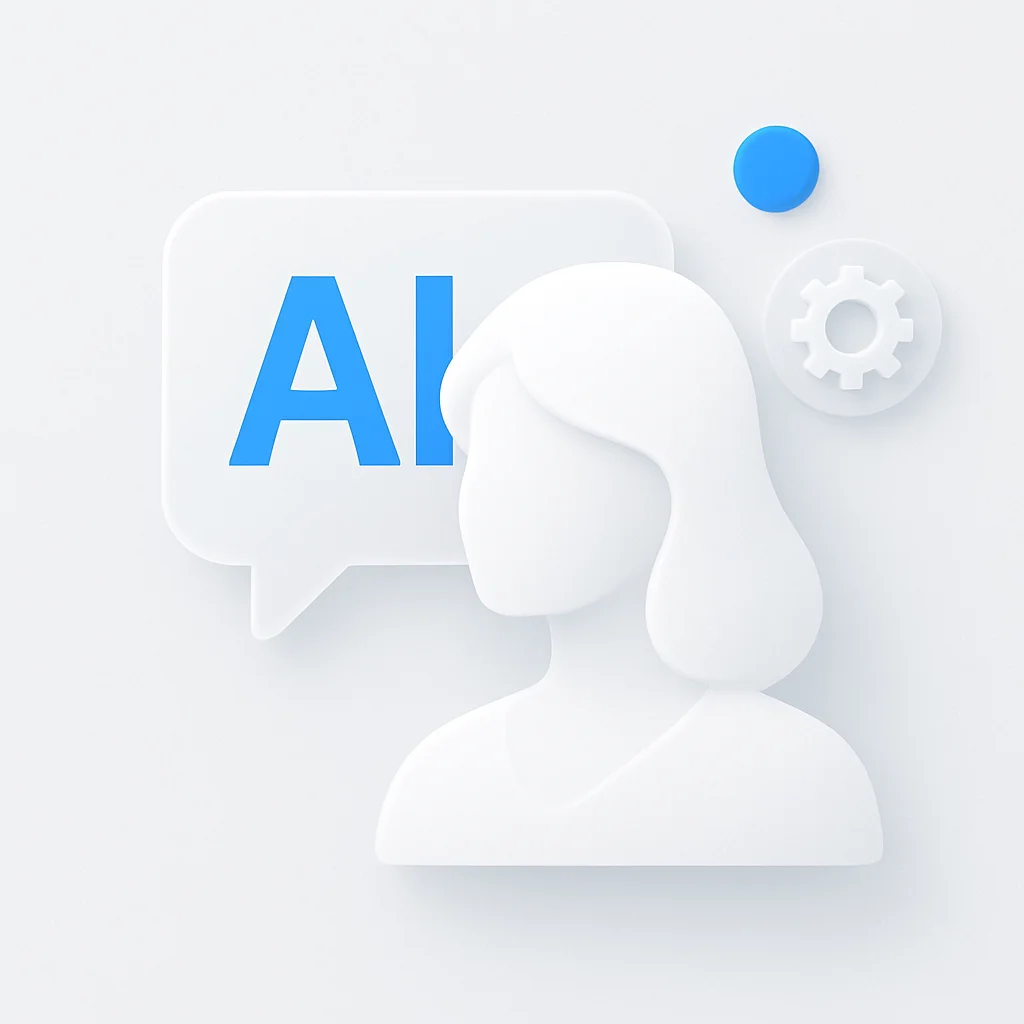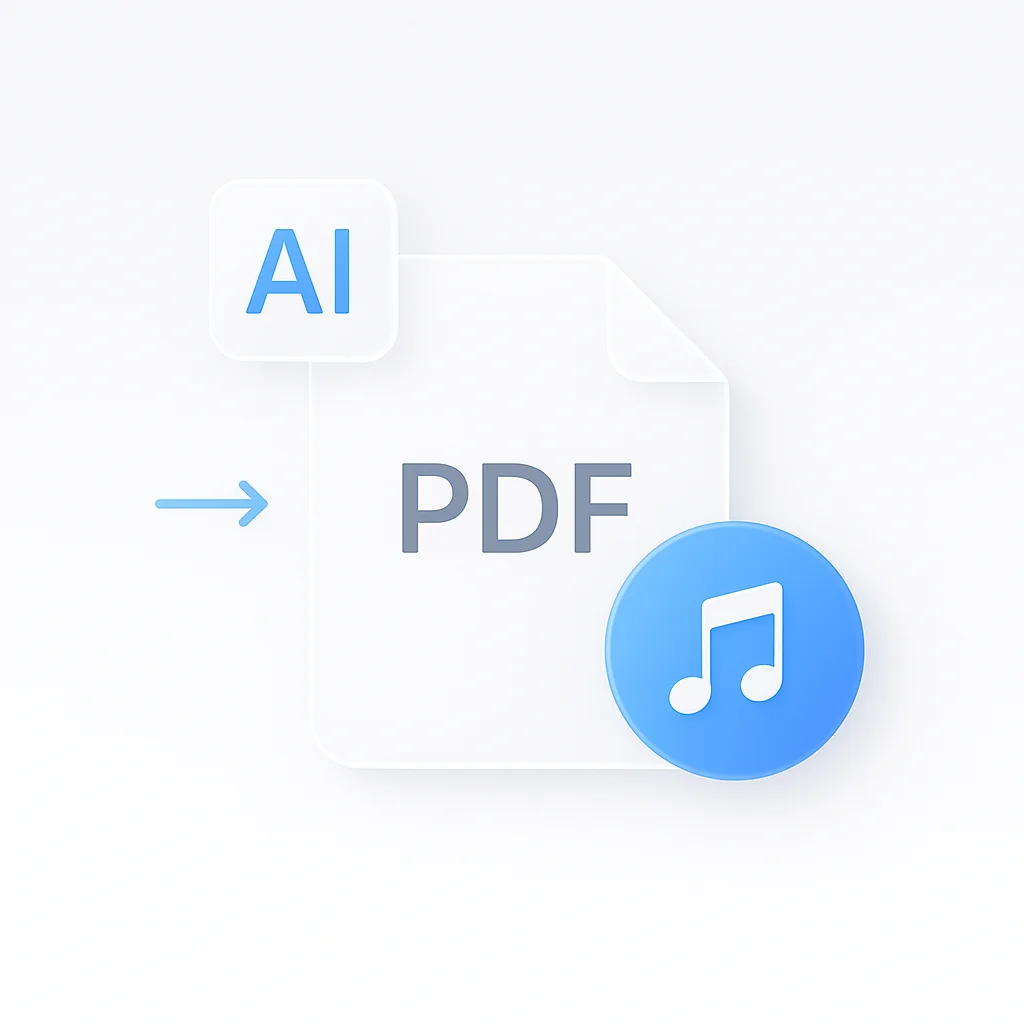It’s More Than Just a Smarter Goomba
Think of the relentless Alien that learns from your every move in Alien: Isolation adapting its hunting patterns, remembering your hiding spots, and creating an unscripted, terrifying experience that feels genuinely intelligent. This is the powerful reality of AI in gaming today.
According to Statista, the global gaming market reached $217 billion in 2023, with AI playing an increasingly crucial role in driving innovation and player engagement.
While many think game AI is simple scripted behavior, it has evolved into a complex field that’s fundamentally changing how games are made and played. This guide explores both the AI you can play with today and the generative AI revolution that’s reshaping game development in 2025.
AI in Games Today: The Hidden Intelligence in Your Favorite Worlds
Modern video games contain sophisticated AI systems that create dynamic, responsive experiences. Let’s explore the most advanced examples currently available.
The Unpredictable Hunter: Dynamic & Emergent AI
Alien: Isolation showcases one of gaming’s most impressive AI systems. The Xenomorph doesn’t follow predetermined paths it uses a “Director AI” that creates an unscripted, terrifying experience through emergent behavior.
The alien learns from your actions, adapts its hunting strategies, and creates unique encounters every time you play. It can hear you, see you, and remember where you’ve been, making each playthrough genuinely different.
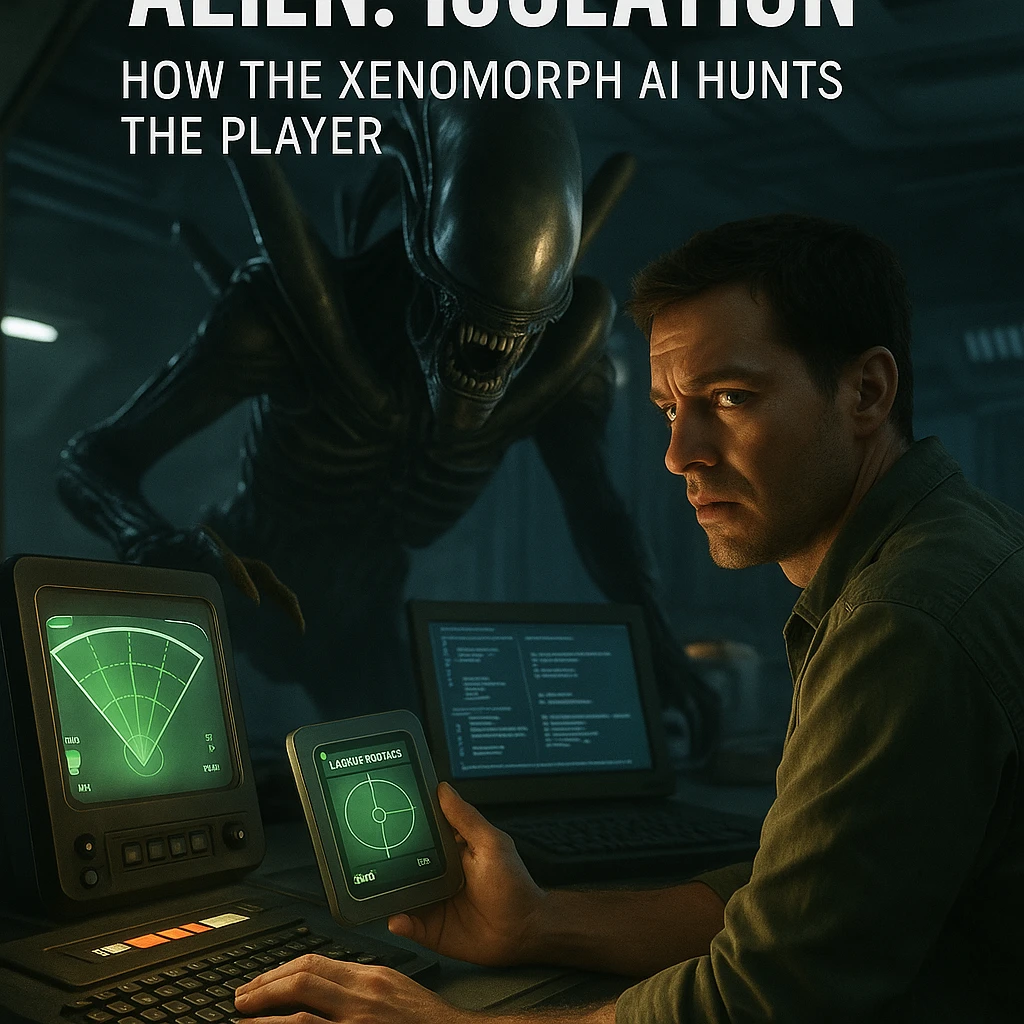
Alien: Isolation
The Xenomorph uses advanced AI that creates unpredictable, emergent behavior patterns.
- Dynamic pathfinding
- Memory of player actions
- Adaptive hunting strategies
- Unscripted encounters
The Living World: Advanced Ambient & NPC AI
Red Dead Redemption 2 revolutionized NPC behavior with its living world system. Every NPC has daily routines, memories, and realistic responses to player actions. They remember if you’ve helped or harmed them, creating a world that feels genuinely alive.
The game’s AI creates thousands of unique interactions, from NPCs reacting to your clothing choices to remembering your past actions and treating you accordingly.
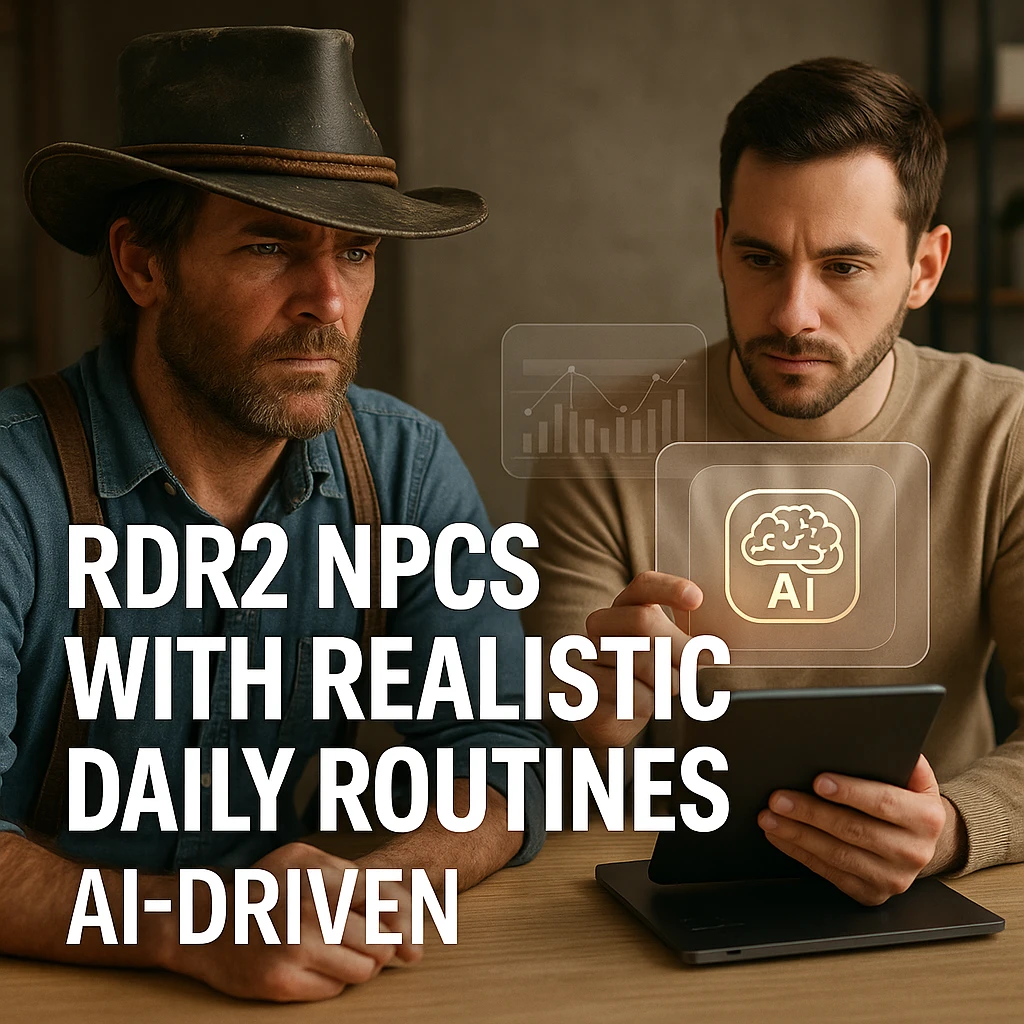
The Evolving Enemy: The Nemesis System
Middle-earth: Shadow of Mordor introduced the groundbreaking Nemesis System, where enemies develop personalities, memories, and relationships based on your interactions. If you kill an orc captain, his blood brother might seek revenge with new abilities and dialogue referencing your past encounter.
This system creates dynamic storytelling where every player’s experience becomes unique through AI-driven character development.
The Tactical Squad: Advanced Combat AI
F.E.A.R. revolutionized squad-based AI with enemies that coordinate attacks, use cover intelligently, and adapt their strategies based on your actions. The AI uses Behavior Trees and advanced pathfinding to create realistic tactical combat.
The Last of Us took this further with enemies that flank, communicate, and respond to your weapon choices and tactics in real-time.
The Generative AI Revolution: How Games Are Being Built in 2025
AI is no longer just inside games it’s now helping create them. The gaming industry is experiencing a seismic shift as generative AI becomes a co-developer.
AI in Video Game Development: The AI Co-Developer
Modern game development increasingly relies on AI tools that can generate assets, create content, and even help with game design decisions.
Using AI to Create Game Assets
Generative AI is revolutionizing asset creation by generating textures, 3D models, character designs, and audio. Tools like AI video analysis can help developers understand player behavior patterns, while AI-powered asset generators create high-quality content in minutes instead of hours.
This technology is particularly valuable for indie developers who can now create professional-quality assets without massive budgets. For content creators looking to analyze gaming videos, tools like AI video analysis can provide insights into player behavior and engagement patterns.
Procedural Content Generation (PCG): Creating Infinite Worlds
No Man’s Sky demonstrated the power of AI-driven procedural generation, creating billions of unique planets with distinct ecosystems. Modern PCG systems use machine learning to generate not just landscapes, but quests, characters, and storylines.
Games like Minecraft and Elite Dangerous use similar systems to create vast, explorable worlds that would be impossible to design manually.
AI-Driven Narrative Design and Dynamic Quests
Large Language Models (LLMs) are creating NPCs with unscripted dialogue and quests that adapt to player choices. Games can now generate unique conversations, storylines, and missions based on player actions and preferences.
This creates truly dynamic storytelling where no two players experience the same narrative. Similar to how AI content repurposing can transform video content for different audiences, game AI can adapt the same base content to create personalized experiences for each player.
AI for Game Testing and QA Automation
AI bots can play games continuously to find bugs, test game balance, and identify exploits. This saves thousands of human hours and catches issues that human testers might miss.
Companies are using AI to simulate millions of gameplay scenarios, ensuring games are balanced and bug-free before release.
The Full Picture: Advantages, Disadvantages, and Ethical Challenges
Benefits of AI in Gaming
- Enhanced realism and immersion through dynamic NPCs
- Infinite replayability with procedural content
- Faster development cycles with AI-generated assets
- Personalized experiences through adaptive difficulty
- Reduced development costs for indie studios
- More complex and responsive game worlds
Challenges of AI in Gaming
- High computational power requirements
- Potential for unpredictable bugs and glitches
- Risk of making games feel "too perfect" or sterile
- High development costs for advanced AI systems
- Ethical concerns about job displacement
- Data privacy issues with adaptive AI
The Ethical Implications of AI in Gaming
The rise of generative AI raises important questions about the future of game development. While AI tools like video analysis can enhance player experiences, they also impact the jobs of artists, writers, and QA testers. For more insights into how AI is transforming various industries, explore our AI tools for customer support guide.
A McKinsey report estimates that generative AI could add $2.6 trillion to $4.4 trillion annually to the global economy, with gaming being one of the industries most impacted by this technology.
Data privacy concerns emerge as AI systems collect and analyze player behavior to create personalized experiences. The gaming industry must balance innovation with ethical considerations.
The Horizon: Future of AI, Next-Gen Trends, and Related Tech
Generative AI Integration
AI tools become standard in game development workflows, with most studios using AI for asset generation and content creation.
AI-Generated Games
First commercially successful games created entirely by AI, with human developers acting as creative directors.
Full AI Integration
AI becomes the primary tool for game creation, with human developers focusing on creative direction and quality assurance.
The Convergence of AI with AR, VR, and Cloud Gaming
AI will create more realistic virtual characters in VR, smarter world overlays in AR, and enable more complex server-side AI processing via cloud gaming. The combination of these technologies will create unprecedented gaming experiences.
AI Creating Entire Video Games: A Realistic Possibility?
While AI can currently generate assets and content, creating complete games requires human oversight for quality, coherence, and creative vision. However, AI is becoming increasingly capable of handling complex game design tasks.
The future likely involves AI-human collaboration where AI handles technical implementation while humans focus on creative direction and quality assurance.
For the Academics: Using Games to Train World-Changing AI
Games serve as complex benchmarks for AI research. DeepMind’s success in mastering StarCraft II demonstrated how gaming environments can train AI systems for real-world applications. According to research published in Nature, DeepMind’s AlphaStar achieved Grandmaster level in StarCraft II, showcasing the potential of AI to master complex, real-time strategy games.
Reinforcement learning techniques developed for games are now solving logistics problems, optimizing supply chains, and advancing autonomous vehicle technology. Games provide safe, controlled environments for testing AI capabilities at scale. This research has applications beyond gaming similar to how AI video analysis can extract insights from any video content, gaming AI research helps develop systems that can understand and respond to complex, dynamic environments.
Conclusion: The AI Co-Developer
AI has evolved from a tool for creating “scripted intelligence” to a creative partner for developers and a dynamic force that shapes the modern player experience. The future of gaming lies in the collaboration between human creativity and AI capabilities.
As we move forward, the key is balancing AI innovation with human oversight, ensuring that games remain engaging, meaningful, and ethically developed. The gaming industry is on the cusp of a revolution one where AI doesn’t just enhance games, but fundamentally redefines how they’re created and experienced.
Frequently Asked Questions
What are the best examples of AI in modern video games?
The most impressive AI implementations include Alien: Isolation’s adaptive Xenomorph, Red Dead Redemption 2’s living world NPCs, Middle-earth: Shadow of Mordor’s Nemesis System, and F.E.A.R.’s tactical squad AI. These games demonstrate how AI can create dynamic, responsive experiences that feel genuinely intelligent.
What are the main advantages of using AI in gaming?
AI in gaming provides enhanced realism, infinite replayability through procedural generation, faster development cycles, personalized experiences, and reduced costs for indie developers. It also enables more complex and responsive game worlds that adapt to player actions.
How does generative AI work in video game development?
Generative AI uses machine learning models to create game assets like textures, 3D models, and audio. It can also generate procedural content, create dynamic narratives, and assist with game testing. Tools like content repurposing help developers create more engaging experiences.
Will AI replace game developers?
AI is more likely to augment rather than replace game developers. While AI can handle technical tasks and asset generation, human creativity, vision, and quality assurance remain essential. The future involves AI-human collaboration where each focuses on their strengths.
Can AI create an entire video game by itself?
Currently, AI can generate individual components but struggles with creating coherent, complete games. Human oversight is still needed for creative direction, quality assurance, and ensuring narrative coherence. However, AI is becoming increasingly capable of handling complex game design tasks.
Where can I find research papers or technical articles on game AI?
Academic sources include conferences like SIGGRAPH, GDC (Game Developers Conference), and journals like IEEE Transactions on Games. Organizations like DeepMind and OpenAI regularly publish research on AI gaming applications. For practical applications, explore how AI video analysis can enhance gaming experiences.
